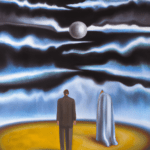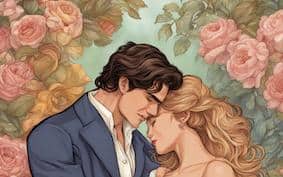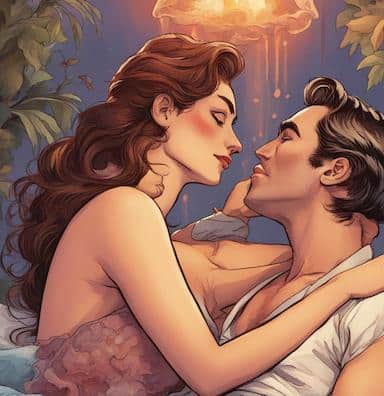When it comes to writing romance, one of the most important elements of a successful story is a happy ending in romance. Readers crave that happy resolution for the couple they’ve come to root for, and a poorly executed ending can leave them feeling cheated and disappointed. However, crafting a perfect happy ending is easier said than done. So, what are some key elements to keep in mind when wrapping up a romance story?
Guide to Writing a Happy Ending in Romance

First and foremost, a happy ending needs to be earned. In order for readers to fully invest in the love story and feel satisfied by its conclusion, they need to see the couple go through trials and tribulations before finally coming together. Whether it’s external obstacles such as family conflicts or internal struggles like self-doubt or past trauma, the characters should face challenges that make their eventual happiness feel earned and deserved. By the time the couple finally confesses their love or shares their first kiss, readers should feel like they’ve been on a journey with them and that they’ve earned their happy ending.
Another important factor to consider is the balance between happy and realistic. While a happy ending is essential in a romance story, it shouldn’t come at the expense of believability or authenticity. The couple should overcome their obstacles in a way that feels true to their personalities and the story’s overall tone. For example, if the couple has spent the entire book struggling to communicate effectively, a sudden, perfect heart-to-heart conversation may not feel authentic. The happy ending should be satisfying and uplifting, but it should also make sense within the context of the story.
In addition to these general principles, there are a few specific elements that can help make a happy ending feel particularly satisfying:
- A grand gesture: This classic romance trope can be incredibly effective when executed well. Whether it’s a public declaration of love, a surprise proposal, or a daring rescue, a grand gesture can show the depth of the couple’s feelings and leave readers feeling warm and fuzzy.
- An epilogue: While not strictly necessary, an epilogue can be a great way to tie up loose ends and give readers a glimpse into the couple’s future. Whether it’s a year later or ten, an epilogue can show readers how the couple’s relationship has progressed and give them a sense of closure.
- A satisfying resolution to subplots: A romance story doesn’t exist in a vacuum, and subplots involving friends, family, or other characters can add depth and complexity to the overall narrative. By resolving these subplots in a way that feels natural and satisfying, the happy ending can feel even more complete.
- A unique twist: While a happy ending is a must for a romance story, that doesn’t mean it has to be predictable. A well-executed twist or surprise can leave readers delighted and impressed, as long as it still feels true to the story and the characters.
At the end of the day, writing a happy ending in a romance story is all about striking a balance. It needs to be satisfying and uplifting while still feeling authentic and earned. By keeping these principles in mind and incorporating some of the specific elements mentioned above, writers can craft a happy ending that leaves readers feeling warm and fuzzy long after they’ve finished the book.
Keywords: romance, happy ending, writing, characters, grand gesture, subplots, authenticity, balance, believability, resolution, happy ending in romance, writing a happy ending in romance, tips for a happy ending in romance, steps for writing a happy ending in romance, guide for happy ending in romance, types of happy ending in romance, writing guide for happy ending in romance
Check out our Novel Writing Workbooks
Check out Little Tree Food Forest for articles on food forests and homesteading.
Check out FoodieScapes for articles on growing, fermenting and preserving food
Check out StoryScapes.World for articles on writing.
Subscribe to our newsletter to get information delivered to your inbox on how to write a book, outlining your novel, keeping journals, marketing your novel, self-publishing, writing poetry and more.










